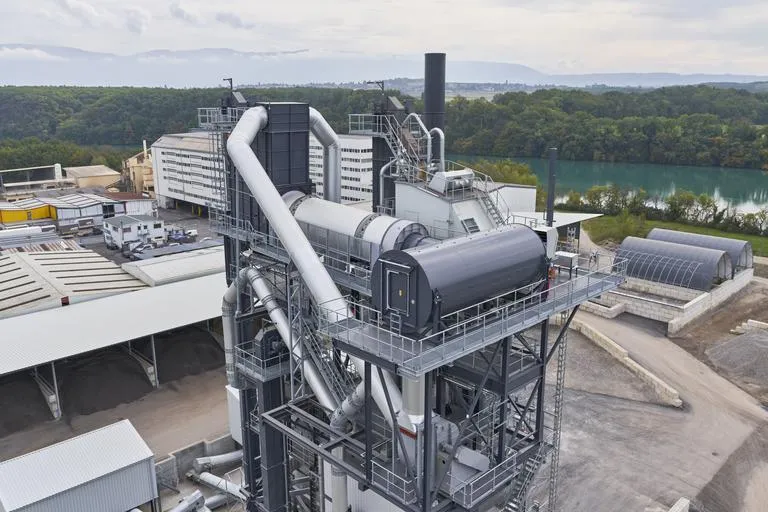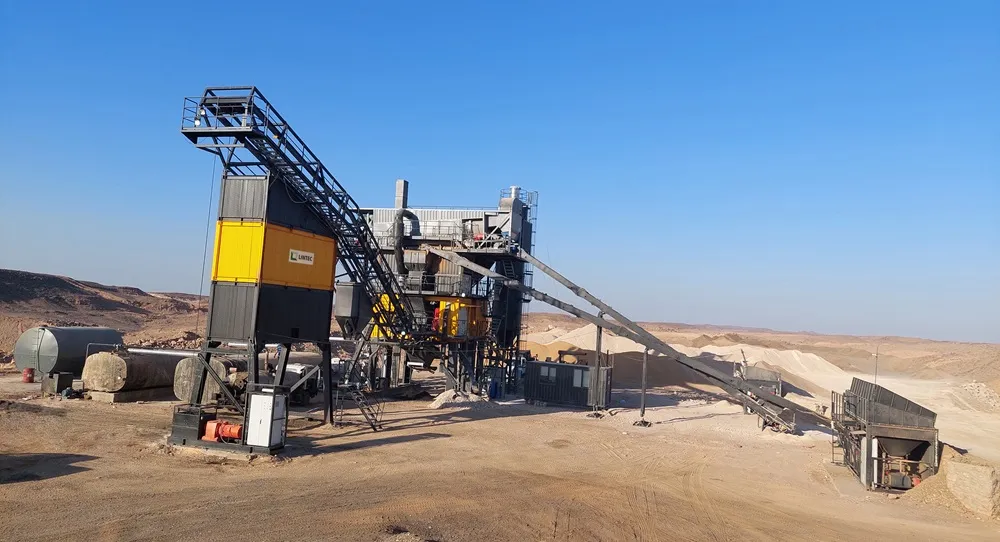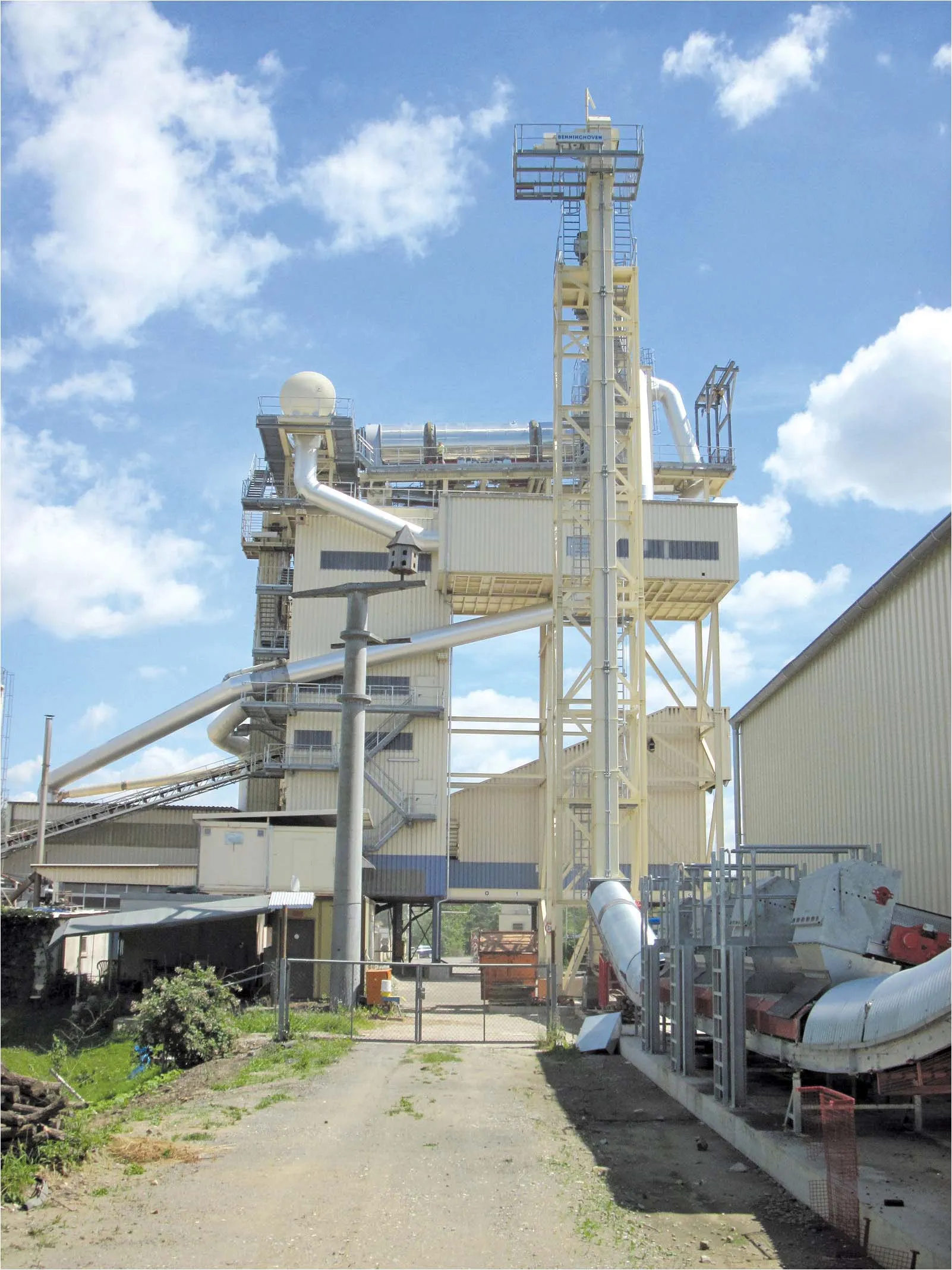
Reducing the carbon footprint in asphalt production is a priority for the sector to achieve sustainability. Working efficiently with sustainable and economical technologies presents challenges but solutions from Benninghoven will help lower emissions.
Benninghoven offers a range of solutions for increasing sustainability in asphalt production. Considering the entire road construction process from material acquisition and asphalt production to building roads, companies can save up to 54% CO2 using these technologies. *
The intelligent Benninghoven solutions include recycling asphalt, the correct storage of virgin and recycled materials, using lower temperature asphalt, electrifying bitumen tanks and renewable future fuels.
Sustainable operations are the current challenges for counteracting climate change. The 2015 Paris Climate Accords require greenhouse emissions to be halved by 2030 and eliminated completely by 2050. Despite being a small sector, the asphalt sector can contribute as asphalt production offers a potential for reducing emissions such as CO2 and Ctot (total carbon).
One control instrument asphalt plant owners face is the taxation of emitted CO2 and emissions trading, the costs of which will increase in years to come. The fewer greenhouse gases emitted by asphalt plants, the greater the savings.
Benninghoven has decades of experience with recycling reclaimed asphalt. But recycling material is not only sustainable. The material removed by milling the asphalt during road resurfacing is also cheaper than virgin material from a quarry. In addition, reclaimed asphalt contains bitumen, the most expensive ingredient in asphalt production.
Benninghoven offers different cold and hot recycling feed systems, including the patented Benninghoven REVOC hot-gas generator. It allows up to 100% recycled material with low emissions. The system is a retrofit solution for existing asphalt mixing plants equipped with one or more recycling systems and reduces the total carbon concentrations in the exhaust gas.
Ensuring stored virgin and recycled materials are as dry as possible is important for energy-efficient mixing, helping to lower emissions such as CO2. Just 1% more moisture in the starting material corresponds to 1litre of additional heating oil (or an energy equivalent) for each tonne of asphaltic mixture. This is one reason why the German TA-Luft regulation requires covered storage of these materials.
Drying and heating processes for virgin recycled materials are energy-intensive in asphalt production. Fuel and emissions can be saved if authorities and owners use reduced-temperature asphalt; mixtures with a final temperature of around 120°C. This equates to a 30% reduction compared to conventional mixtures, which usually require a temperature of around 160°C. The potential for energy and CO2 reduction is greater: cutting 18,000kWh and 6,000kg CO2 during the production of 2,000tonnes of asphalt/day.
Benninghoven asphalt mixing plants can produce high-quality reduced-temperature asphalt in a reliable process. One important technology for this is a foam bitumen module, which Benninghoven also offers as a retrofit solution. Foam bitumen requires only water for producing reduced-temperature asphalt, which is already available at any asphalt plant. Mixing hot bitumen with water multiplies the volume many times. The released surface energy ensures that the binder moistens the mineral during the mixing process even at low temperatures, generating installation properties comparable to hot asphalt.
For storing hot bitumen Benninghoven offers bitumen tanks with different capacities. These come with one or multiple chambers and can also be equipped with an agitator or a mixing nozzle.
Electrification eliminates local emissions, in contrast to oil heating, ensuring CO2-neutral bitumen storage in the overall balance. In addition, electrically heated tanks are not regulated by environmental authorities and there are no environmental restrictions.
More sustainability in asphalt production means moving away from fossil fuels such as coal and oil. Benninghoven already offers the EVO JET burners which use the fuels of the future. These fuels are made from renewable raw materials and have a neutral CO2 balance. They include biomass to liquid fuels (BtL) and wood dust. Even the complex process of burning wood dust results in a smooth flame pattern, allowing reliable plant operation.
The Benninghoven technology can also be used for modern fossil, gaseous fuels such as liquid gas or natural gas. Changing from coal dust to natural gas or liquid gas halves CO2 emissions.
In addition to this, the Benninghoven engineers continue to work on the sustainable and economical use of other fuel types. Using hydrogen, for example, could be an option for overcoming the challenges of the future.
*(Annual production of 100,000tonnes asphalt, 60% added recycling material, carbon-neutral fuel)









